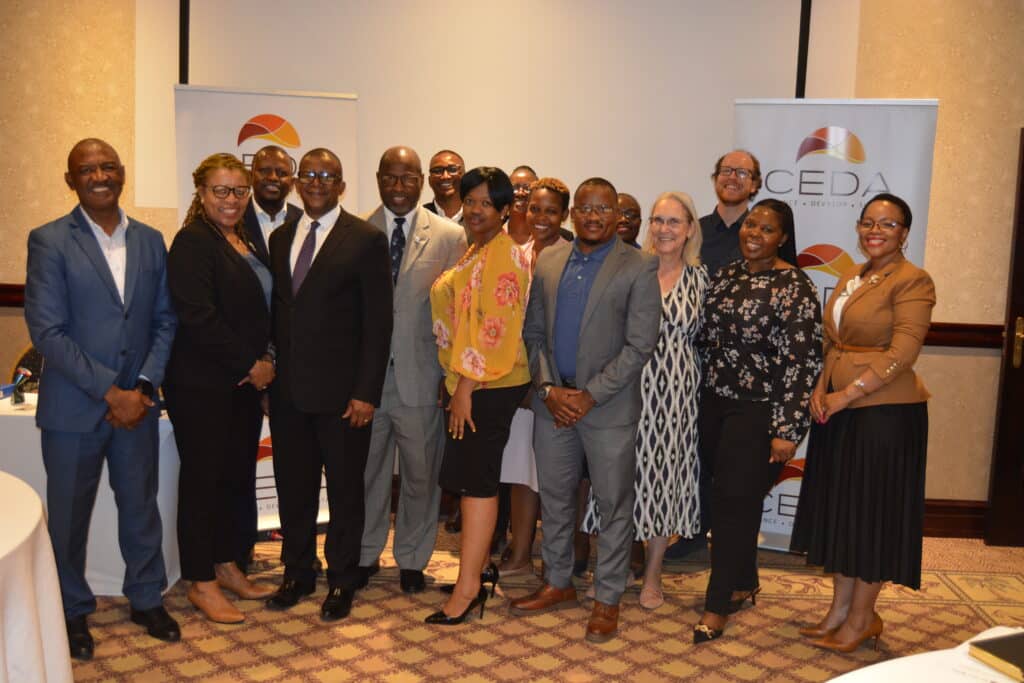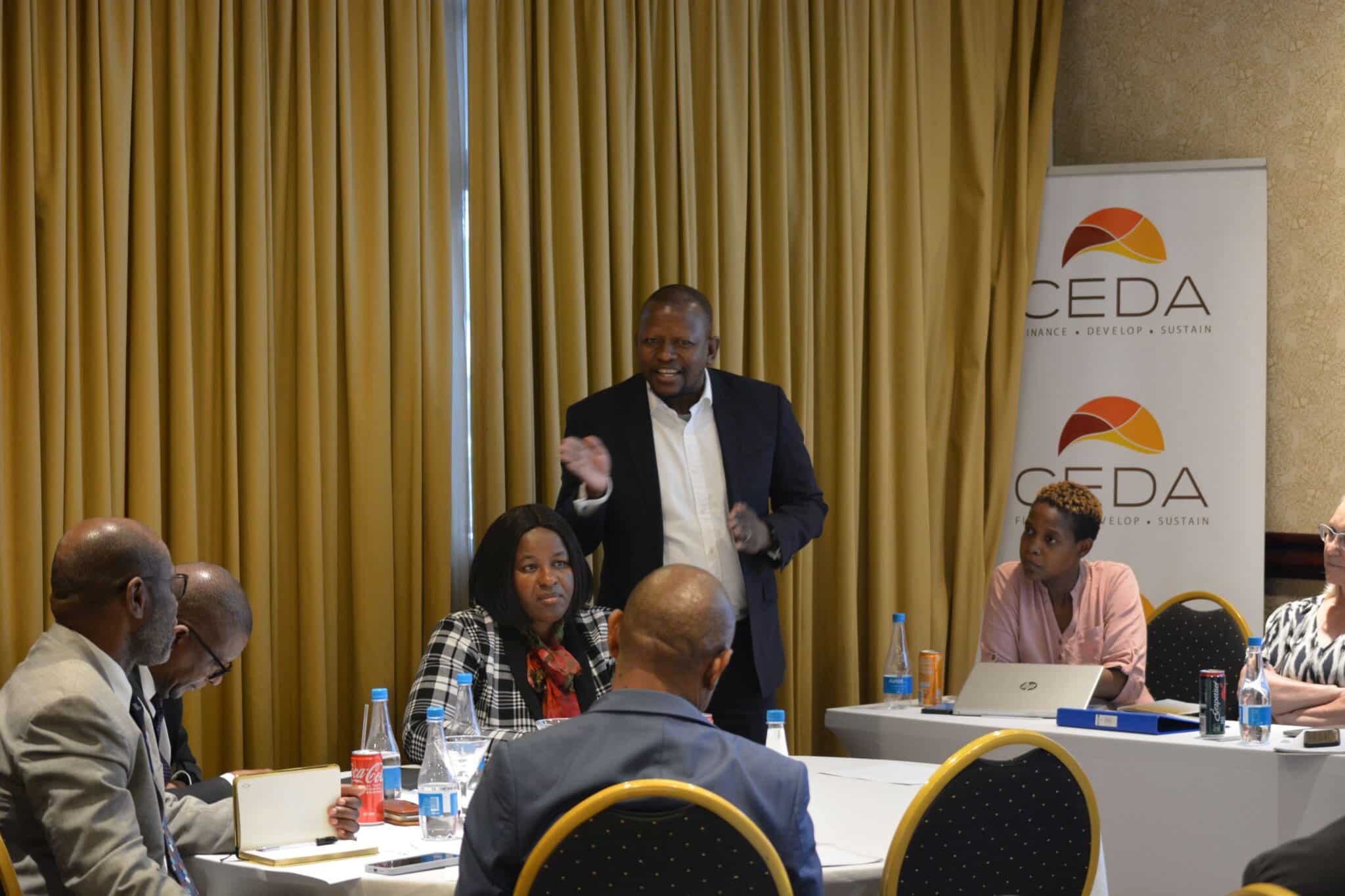Botswana is looking to reshape its future. The longest uninterrupted democracy in Africa, the middle-income country has set out a transformational agenda that it hopes will see it achieve prosperity for all. Vision 2036 has an aim to turn Botswana into a high-income country by building an inclusive and thriving private sector, with a particular emphasis on women, youth and people with disabilities.
But while Botswana became one of the world’s fastest-growing economies after its independence in 1966, it has more recently been held back by “development challenges”, according to the World Bank, including inequality, sluggish job creation, and high unemployment (25% in 2023). The World Bank suggests “accelerating reforms to support the business environment, and providing effective support for entrepreneurship and private-sector job creation”.
Vital to this is developing Botswana’s large informal sector, one that is dominated by micro businesses which tend to be untaxed and unregistered and therefore not monitored by the government. According to a household survey in 2015/16, there are just over 105,000 informal businesses. Entrepreneurs in this sector include street hawkers, vendors, food sellers, hairdressers, carpenters, informal taxis, and those selling second-hand clothing. They have little job security and most fall outside the scope of decent work as defined by the International Labour Organization. Many such informal businesses are run by women – who live on a subsistence basis and are more vulnerable to economic shocks.
Women have less access to finance
CEDA, the Citizen Entrepreneurial Development Agency, was established by the Botswana government to offer financial support to all groups, including those considered risky investments. “We close the financing gap that is not otherwise met by the financial banks,” explains Malebogo Khowe, a product development manager at the development finance institution (DFI).
But she acknowledges that certain groups appear to be largely absent from CEDA’s portfolio, including women in the informal sector, often running micro businesses. According to CEDA, only 10% of women access loans with higher-value that could lead to the women growing their businesses to more sustainable, profitable businesses. Reaching underserved women and understanding their specific needs is difficult. CEDA sought technical assistance through the ICR Facility to tackle this issue.
The objective in this case was to build a picture of the financial challenges female entrepreneurs face in the informal sector and respond with a framework. The aim? Targeted financial products, coupled with support in areas such as financial literacy, bookkeeping and business management, so that women would be in a better position to formalise their businesses. “We thought a framework would help us be able to build that and help women become more empowered and more skilled, to grow their businesses and become more formal,” says Khowe.
Informal business sector precarious
In Botswana, like in most parts of the world, the pandemic put a strain on small businesses – as detailed in the country’s Informal Sector Recovery Plan. The report includes recommendations for helping entrepreneurs: “Such support is especially needed for women entrepreneurs as one of the more vulnerable groups operating within the informal sector,” it concluded.
“These informal businesses are precarious. After Covid a lot had to stop,” confirms Yolanda Gibb, one of the ICR Facility’s trainers in BER4WEE. She explains that for many of the women she spoke to – the people CEDA would like to reach – their businesses were barely surviving. For these entrepreneurs, even going from a traders’ licence to registering a business name is a “huge step”, Gibb says.
In spring 2023, the consultant ran 13 focus groups with women – recruited from CEDA’s large database – to better understand the challenges they faced. She heard stories of women living on the margins. Some would simply sell food on a roadside, others would sew from home, while another group might have a tuck shop. Most didn’t understand the importance of separating their household and business expenses. In the case of a crisis, the money would get spent and they’d need to rely on friends and family or get a very small loan from CEDA to keep their business afloat.

Developing in-depth insights
Two existing CEDA products target women such as these – a basic loan that was launched after Covid and has a low threshold to be met; and a group loan where those getting capital act as guarantors for each other. But there was little nuance within these, says Gibb. So, for example, there could be an intermediary product for ambitious businesses that are in a position to formalise but can’t access a higher-value loan.
Four “personas” – typical female entrepreneurs at different business stages and/or with different orientations – were developed as a result of the qualitative study. These are now being used to gain deeper insights into CEDA’s customers and as part of a framework for improvements. For CEDA’s product development manager, it has been revelatory. “It presents an in-depth opportunity for us to look at it and see where the low-hanging fruit lies, what are the immediate things that we could work on,” says Khowe. They’re also looking at how to help women entrepreneurs consolidate some of their business interests as a first step to growth and getting a loan, a recommendation that came out of the research.
A wider dialogue
Stakeholders to validate some of the research findings, to be published in a report, and move forward with solutions. Those invited included business organisations; universities; the Local Enterprise Authority with a remit that includes incubation, mentoring and training; and the Ministry of Entrepreneurship, a government department with a mandate to support the entrepreneurial ecosystem.
The meeting tabled suggestions about how CEDA could work more closely with the Ministry, its parent agency, to mobilise institutions in an effort to improve the investment climate for women and other special interest groups. And, of course, there is the expectation that as more women establish formal businesses, they’ll be more likely to be engaged in decent work that is profitable.
Khowe from CEDA believes that many female entrepreneurs have the potential to grow businesses, create employment and contribute to the economy with a bit of support. These, she adds, will be “better equipped to compete in the sectors that are predominantly occupied by men”. Closing this gap will help spur women’s economic empowerment and realise the country’s vision of prosperity for all.
Find out more about how the ICR Facility supports ACP countries in improving the business environment climate here.
The ICR Facility supported the production of this publication. It is co-funded by the European Union (EU), the Organisation of African, Caribbean and Pacific States (OACPS) under the 11th European Development Fund (EDF), the German Federal Ministry for Economic Cooperation and Development (BMZ) and the British Council. The ICR Facility is implemented by GIZ, the British Council, Expertise France, and SNV. The contents of the publication are the sole responsibility of the authors and do not necessarily reflect the views of the EU, OACPS, BMZ or of the implementing partners.
